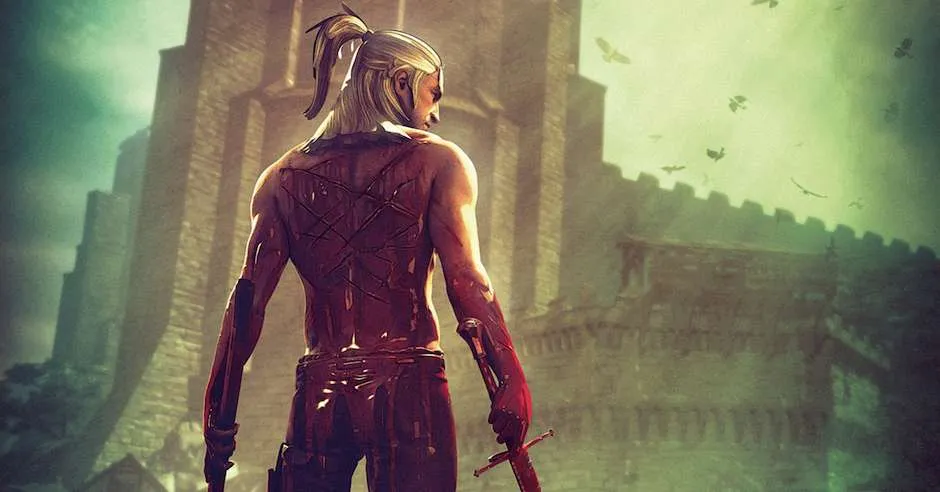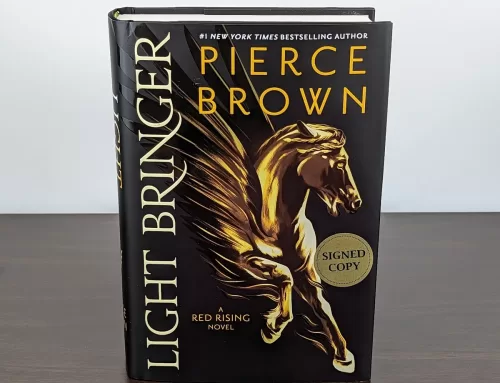I tried watching The Witcher TV series a few years ago when it launched on Netflix, and found that the first few episodes were more confusing than anything. So despite its cool world and seemingly solid production value, I ended up writing it off.
Figured I’d wait til I got around to reading the books.
Finally finished Book #1: The Blood of Elves, and I can say that I’m… well, I’m slightly less confused than when I watched the TV show’s first few episodes.
Honestly, for all the Witcher hype among fantasy fans, I wasn’t particularly impressed with the book. But so I don’t ramble, let’s go through the good and the not so good in that order.
Making Fantasy Fans Drool
Like the TV series’ early episodes, Blood of Elves portrays a fascinating world. Andrej Sapkowski does well hinting at the political landscape, the soft magic system, the creatures, and, perhaps coolest of all, the Witchers and whatever they are, exactly. He manages to whet appetites in this book.
Characterization is mostly solid here, too, at least for the main characters. There are several POVs, and they don’t really follow a particular pattern. Some of the book you’re with Geralt, other times you’re with Ciri, other times you’re with characters that come and go. This can be a bit jarring, but the characters we follow and see are done well, have a voice, and you usually care about them.
I’ll also say that I liked the action scenes, though there were few. I was expecting more, admittedly, but the ones that existed were tight and played their role well; I did not experience any action fatigue in this book.
That said, I became fatigued in other ways.
Fantasy Fandom Feud
I think I got about 200 pages into the book and found myself wondering what was going on.
The honest answer is: so much and yet nothing at all.
Despite a clear and interesting inciting incident – the events and significance of which, admittedly, creatively piece together as the story progresses – I couldn’t help but find myself wondering where this story was going. By the 300-plus page mark, I realized that this is only the very beginning. The bad news is, of course, that you have to wait for future books to find any real resolution.
Blood of Elves felt like a really long first act. There wasn’t a major problem to solve, and therefore there wasn’t much of a resolution. Ciri made some progress in her character, admittedly, and you can totally see how her and Geralt’s arcs could come together in future books. But in the end, it feels incomplete as a book.
In other words, lots of potential but not a lot of progress.
I know world-building vs. plot progress/pacing is somewhat of a debate among Fantasy genre nerds.
For some, the world-building and anticipation in Blood of Elves will be enough. They’ll happily move to the next book and wait out the plot development, chewing the cud nice and slow. But for me, I can’t help but compare it to a shorter, more immersive book with fantasy elements like Red Rising.
In about 20 000 fewer words, Pierce Brown tells a more interesting and fleshed-out story in a far more engrossing way. Admittedly, it’s from one POV, and it is perhaps a more confined story. But from an immersion perspective, Red Rising wins. It’s an effortless read; Blood of Elves sacrifices plot and flow for breadth of world, much of which could have been delivered while the plot moved faster or focused on one main arc at a time.
My personal view is that in novels, one can expect to have their cake and eat it, too. Not the case in Blood of Elves.
Will Books #2 and #3 (and beyond) pay off better in The Witcher series? Maybe, if I choose to stick around. Other books are just more engrossing for me, and offer more bang for my buck. Personally, I don’t think world-building or characterization have to suffer with a faster pace.
To Be or Not To Be Continued
I have some other minor gripes. You can tell it’s a translation. I’m sure we’re losing some stuff as English readers, and at times diction feels strange. This wasn’t a dealbreaker, though, and even had me enjoying some of the uniqueness.
I also don’t love Gerald as a character. He’s a bit stiff here at times, and he seems a strange mix of playboy and softie, a paradox that feels wrong. I want to like him more, especially with his visual design and redemptive attributes. Unfortunately, he doesn’t get much of an arc here.
Will I give Book #2 a try? Maybe. But this wasn’t a great first entry for me, especially with all the hype. Much like The Way of Kings, I had to force myself through a lot more of it.
If you’re a fantasy fan and don’t mind committing to a slower pace over several books right from the get-go (as I’m sure that’s where the payoffs are), then you’ll probably appreciate Sapkowski’s fantasy world introduction.
If not, save your money and keep reading elsewhere.






